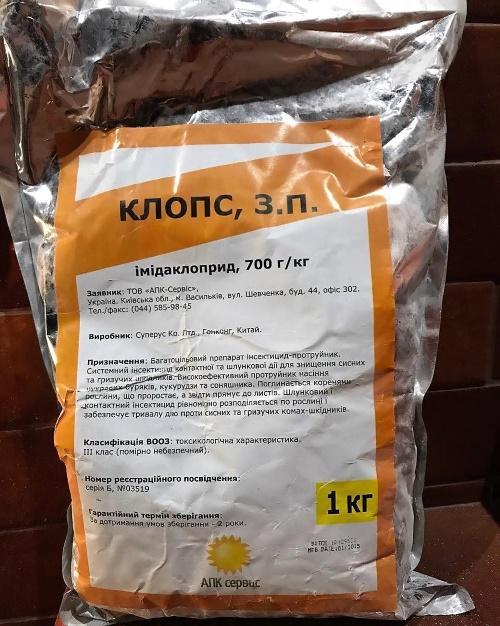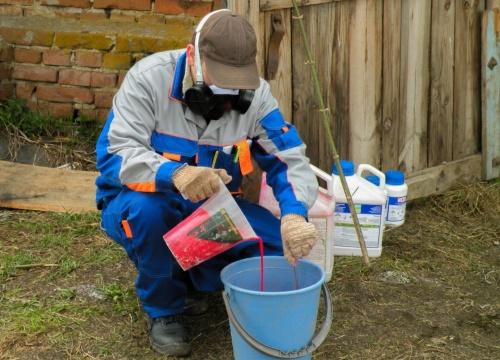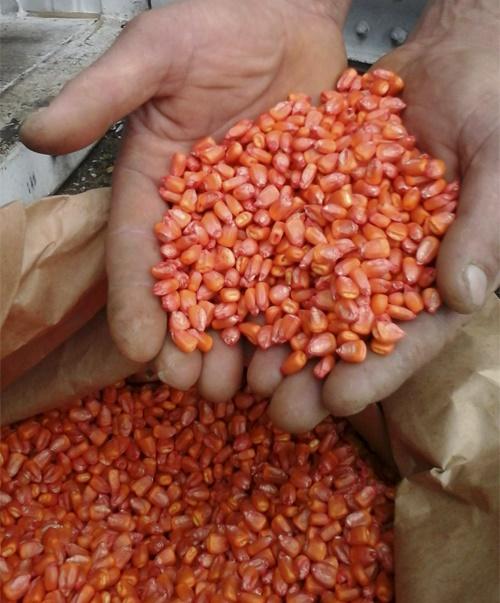Insecticide Klops is a highly effective contact-intestinal dressing agent
 Farmers and gardeners alike can rarely do without additional protection of their plantings, especially when it comes to pests. One of these drugs is insecticide Klops - an effective tool that will prevent crop loss even at the planting stage. The seeds etched by it become "too tough" for earth flies, weevils, wireworms and other pests. As a result, all crops sprout amicably and for a long time the seedlings remain under the protection of an insecticide. How does the drug work, for which crops is it suitable and which insects it protects?
Farmers and gardeners alike can rarely do without additional protection of their plantings, especially when it comes to pests. One of these drugs is insecticide Klops - an effective tool that will prevent crop loss even at the planting stage. The seeds etched by it become "too tough" for earth flies, weevils, wireworms and other pests. As a result, all crops sprout amicably and for a long time the seedlings remain under the protection of an insecticide. How does the drug work, for which crops is it suitable and which insects it protects?
Insecticide characteristic

Clops is an environmentally friendly insecticide with a hazard class 3 (moderate). It is also compatible with many fungicides, which allows you to immediately protect plants not only from pests, but also from diseases. The drug is resistant to washing off, works well even in heat (plus 29 ° C).
Klops insecticide: crop-specific use rates
 Just a single treatment of sunflower seeds (10 kg / 1 ton) will protect it from weevils and wireworms. Treating corn (7 kg / 1 ton) will prevent corn moth, breadfly, flyfly, and the same wireworm attack.
Just a single treatment of sunflower seeds (10 kg / 1 ton) will protect it from weevils and wireworms. Treating corn (7 kg / 1 ton) will prevent corn moth, breadfly, flyfly, and the same wireworm attack.
An even wider range of protection for sugar beets. Seed dressing at the rate of 12 to 20 kg per 1 ton of planting material will prevent damage to fields and garden beds:
- beet weevil and crumb;
- miner beet fly;
- wireworm;
- earthen flea;
- aphids;
- matt dead eater;
- virus-carrying insects.